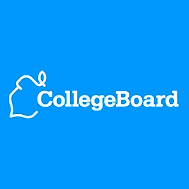 In 2012, 217,656 African-American high school seniors took the SAT college entrance examination. They represented 13 percent of all SAT test takers in the Class of 2012.
In 2012, 217,656 African-American high school seniors took the SAT college entrance examination. They represented 13 percent of all SAT test takers in the Class of 2012.
The mean score for Blacks on the combined critical reading and mathematical portions of the SAT was 856. This was a one-point increase from a year ago.
The mean score for Whites on the reading and mathematics sections of the SAT was 1063, 207 points higher than the mean score for Blacks. This is slight decrease of one point from the 2011 scores. However, since 2006 the racial gap on the critical reading and mathematics sections of the SAT has increased by seven points.
The long-term trend in the racial scoring gap on the SAT also is not encouraging. Since 1988, the racial gap on the reading and mathematics sections of the SAT has increased from 189 points to 207 points.











Since I prepared for the PSAT & SAT in 1970 in NYC public schools up to this date as a retired NYC public school teacher, I am wondering that since education looks very different for different economic groups and for different reasons, what would results look like if the test actually looked more like what is taught in public schools nationally. Just because there are state learning standards does not mean the standards are in alignment with the daily episodes in the day and life of an urban public elementary, middle school, and high school. Many public schools concentrate on the the contents and preparation of SAT tests in high school, way too late for students who are fortunate to make it to school daily.
I am sure no one is surprised regarding this data. There is definitely an African-American problem in regards to achievement, graduation and retention in our high schools. But, the problem starts way before high school, and the school is not the only issue. The home, community and general environment must be considered. Far too many students have lost their way within the K-12 jungle.
The way to correct these problems is not difficult but one must be serious and stay on point. Many educators, parents, community members and others will make excuses but things must improve now-not next year!!!
The real answer to this terrible problem is found in the Coleman Report following the 1967 riots. Yes, go back and read this report on the black community. It all comes down to family! When 72% of black kids are born out of wedlock this is a recipe for huge problems. We need fathers in the lives of our kids -from DAY 1. No other group has anywhere near this out of wedlock birth rate.